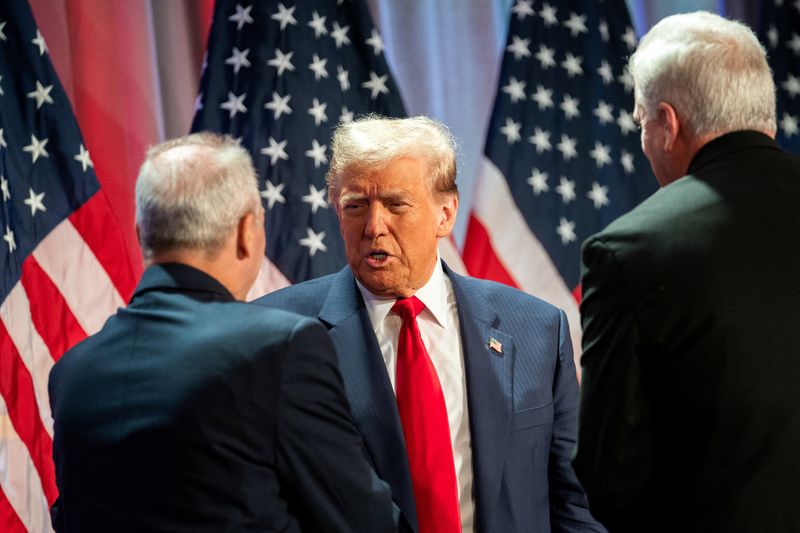
Despite Republican control of both chambers of Congress, UBS notes that the dynamics of high deficits, narrow congressional margins, and rising debt-servicing costs will likely limit expansive fiscal initiatives.
UBS projects that the fiscal deficit will remain elevated, constrained by a combination of economic and political factors.
The federal deficit currently exceeds 7.5% of GDP, and the government debt-to-GDP ratio has surpassed 120%, raising serious questions about sustainability.
While the U.S. benefits from its reserve currency status and deep capital markets, analysts caution that borrowing capacity is not infinite.
Although Trump has laid out ambitious tax cuts and spending promises, UBS anticipates that slim Republican majorities in Congress will pose challenges.
The report flags that fiscal hawks within the Republican Party could obstruct expansive tax and spending plans, particularly given the significant costs involved.
Extending personal income tax cuts from the 2017 Tax Cuts and Jobs Act would alone cost an estimated $4 trillion over ten years. UBS suggests that such measures might be limited to shorter horizons or require offsets like increased tariffs.
Trump’s campaign trail promises include significant increases in border security spending and the extension of tax cuts.
UBS analysts predict these proposals will face resistance from both fiscal conservatives and Democrats.
Additionally, high interest rates further complicate the fiscal landscape. Net interest payments on U.S. debt have already surpassed defense spending, marking a significant shift in budget priorities.
UBS emphasizes that while a U.S. debt crisis does not appear imminent, the long-term trajectory is troubling.
Current projections suggest that U.S. debt-to-GDP will climb to 132% by 2034 under existing trends, with deficits expected to remain above 7% of GDP over the next decade.
Efforts to stabilize the debt-to-GDP ratio will likely require difficult choices, including entitlement reform and potential tax increases. However, political resistance to these measures remains strong.
UBS analysts propose several potential strategies to address the mounting fiscal challenges the U.S. faces under the Trump administration.
One approach involves limiting the extension of the 2017 tax cuts to a shorter time frame. Instead of a ten-year renewal, a five-year extension could mitigate fiscal pressure by reducing the projected revenue loss.
This more measured approach might help balance other fiscal priorities without significantly expanding the deficit.
Another avenue being explored is the use of tariffs to generate additional revenue. A particular focus has been on tariffs targeting China, given bipartisan support for a tougher trade stance.
While tariffs could offer a financial boost, UBS cautions that this method carries significant economic risks, including potential retaliation and reduced global trade activity, which could ultimately strain the U.S. economy.
Lastly, the concept of financial repression is highlighted as a means of managing debt costs relative to GDP growth.
By maintaining artificially low interest rates and implementing regulatory measures to ensure institutional purchases of government bonds, the administration could contain debt servicing expenses.
Such strategies, UBS notes, could offer short-term relief, but they also underscore the complexities of navigating long-term fiscal sustainability in an environment of elevated debt levels.



